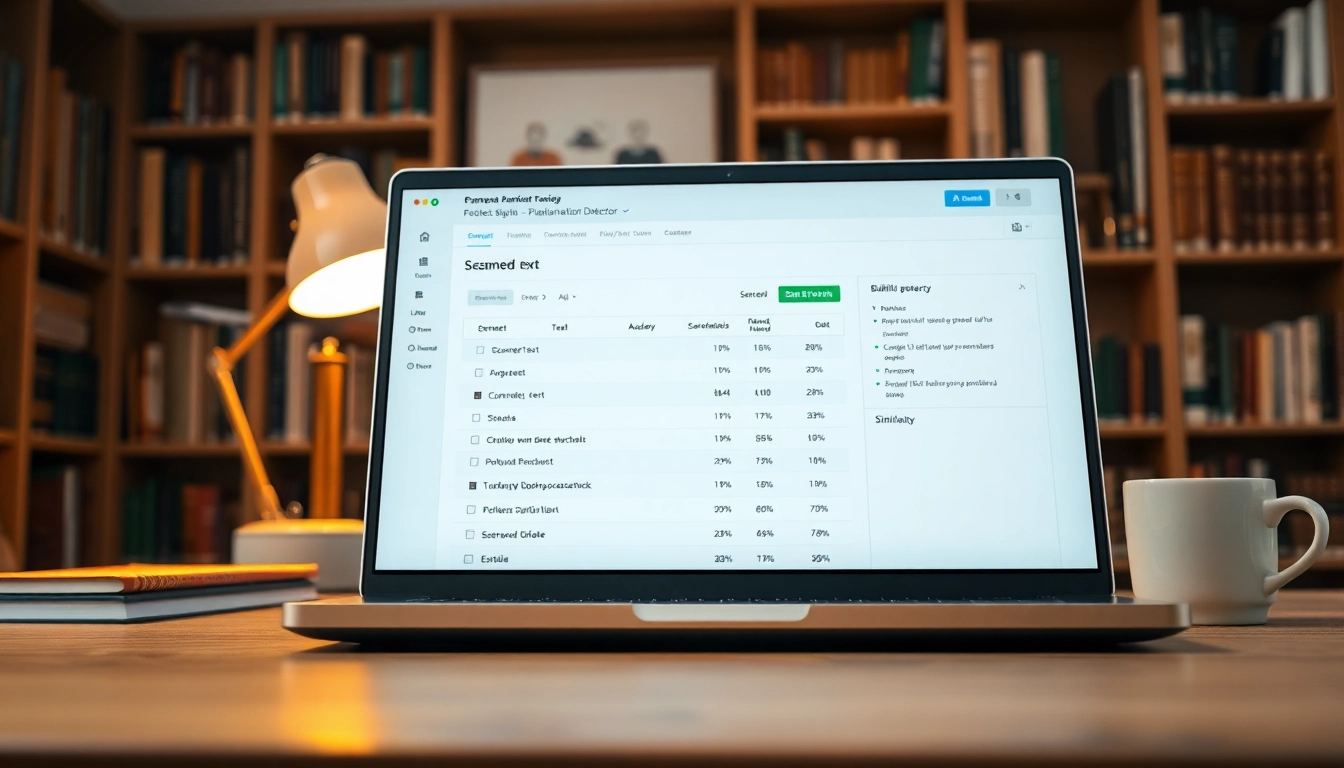Understanding the Level 5 Diploma in Leadership and Management for Residential Childcare
The Level 5 Diploma in Leadership and Management for Residential Childcare is a pivotal qualification designed to equip individuals with essential managerial skills required in a residential childcare setting. This diploma, recognized throughout the UK and aligned with the Qualification and Credit Framework (QCF), is particularly valuable for those aiming for leadership roles in childcare. By honing pivotal skills, graduates of this program can effectively lead teams, develop practices that foster child welfare, and implement management strategies that enhance the quality of care provided to children and young people. For those seeking answers and resources related to the diploma, you may find comprehensive level 5 diploma in leadership and management for residential childcare answers on dedicated educational platforms.
What is the Level 5 Diploma?
The Level 5 Diploma in Leadership and Management for Residential Childcare is aimed at individuals who aspire to reach or develop managerial positions within the residential childcare sector. This qualification typically requires learners to undertake a comprehensive program of study that covers both theoretical and practical aspects of management and leadership in childcare. It focuses on understanding legal frameworks, developing effective communication strategies, and gaining insights into child development, thereby ensuring that participants are well-prepared to lead teams and implement best practices in child care.
Key Learning Outcomes for Childcare Management
As a learner of the Level 5 Diploma, you will gain critical insights and skills necessary for effective leadership in childcare settings. Some of the key learning outcomes include:
- Understanding and applying legislation and regulatory frameworks.
- Developing and implementing operational plans.
- Building and leading effective teams.
- Enhancing the safeguarding and welfare of children.
- Managing professional development and performance within your team.
- Understanding the roles of various stakeholders in educational and childcare settings.
Importance of the Qualification in Residential Care Settings
The Level 5 Diploma is crucial for several reasons. First and foremost, it establishes a professional standard within the childcare sector, ensuring leaders are qualified to provide the best care possible. Moreover, in an environment where child welfare is paramount, the knowledge and skills acquired through this diploma are essential for making informed decisions that affect the safety and development of those in care. Additionally, it opens pathways for career advancement, as many employers seek candidates who hold this qualification for managerial or supervisory roles.
Core Modules of the Level 5 Diploma
Overview of Mandatory Units
The curriculum for the Level 5 Diploma encompasses both mandatory and optional units. Mandatory units often include topics such as:
- Leading and managing a team within residential childcare.
- Supporting the safeguarding and protection of children.
- Understanding and applying the policies relevant to the child’s welfare.
- Managing health and safety within a residential setting.
- Developing frameworks for effective team work and supervision.
These modules ensure that learners grasp the essential responsibilities involved in managing a childcare environment effectively.
Understanding Optional Units
In addition to mandatory units, learners have the option to select from a range of elective units that allow for specialization in specific areas of interest. Common options include:
- Implementing effective behavior management strategies.
- Promoting health and well-being within childcare.
- Working with families to enhance child development.
- Managing risk and crisis in childcare settings.
These optional units allow learners to tailor their qualifications to better suit their career aspirations and the specific needs of the residential childcare environments they work in.
Assessments and Assignments Explained
Assessment methods for the Level 5 Diploma typically include a combination of coursework, practical assignments, and portfolio submissions that demonstrate the learner’s understanding and application of the knowledge acquired. Depending on the institution, assessments may take various forms such as:
- Written assignments that reflect critical analysis and application of childcare theories.
- Practical assessments that observe the applicant’s ability to implement learned techniques in real-life situations.
- Peer reviews and presentations which allow learners to articulate their understanding and learning experiences.
This diverse approach to assessment ensures a thorough evaluation of the learner’s competencies.
How to Prepare for the Diploma Assessments
Effective Study Techniques for Level 5 Success
Preparation for the Level 5 Diploma assessments should be approached methodically. Effective study techniques include:
- Creating a structured study schedule that allocates time for each subject area.
- Utilizing various learning resources such as textbooks, online courses, and case studies.
- Engaging in group study sessions to encourage discussion and enhance understanding of complex topics.
- Practicing past assessments and assignments to familiarize oneself with the expected standards.
These strategies can significantly improve retention and understanding of the material covered in the course.
Resources and Support for Learners
Many resources are available to support learners throughout their journey in accomplishing the Level 5 Diploma. These include:
- Access to online learning platforms that provide up-to-date resources and forums for peer interaction.
- Study groups or local workshops aimed at reviewing key concepts.
- Tutoring options for personalized support in specific areas of difficulty.
- Guidance from previous graduates who have successfully completed the diploma.
Utilizing these resources effectively can enhance the learning experience and reduce feelings of isolation during the study period.
Common Challenges and How to Overcome Them
While pursuing the Level 5 Diploma, learners may encounter various challenges, including managing time effectively, balancing work-life commitments with study demands, and grasping complex concepts. Some strategies to overcome these challenges include:
- Setting realistic goals and breaking down study materials into manageable sections.
- Using organizational tools such as calendars and to-do lists to track progress.
- Seeking feedback from instructors and peers to clarify doubt and enhance learning.
By proactively addressing challenges, learners can maintain motivation and succeed in their assessments.
The Role of Leadership in Residential Childcare
Essential Leadership Skills for Childcare Managers
In residential childcare, effective leadership is crucial to ensuring a safe and nurturing environment for children. Key leadership skills include:
- Effective communication: the ability to convey expectations clearly and maintain open dialogues.
- Emotional intelligence: understanding and managing one’s own emotions as well as those of team members and children.
- Conflict resolution: navigating disagreements constructively to foster a positive environment.
- Decision-making: utilizing data-driven approaches to make informed leadership choices.
- Flexibility and adaptability: adjusting to challenges that arise in dynamic childcare environments.
These skills are fundamental in creating and sustaining a high-quality childcare setting.
Building High-Performing Teams in Childcare
Another vital aspect of leadership in childcare is the ability to build and nurture high-performing teams. Strategies include:
- Establishing clear roles and responsibilities within the team.
- Implementing regular training and development opportunities.
- Fostering a culture of collaboration and mutual respect.
- Recognizing and rewarding team achievements to maintain motivation.
By emphasizing teamwork, leaders can create a supportive environment that significantly enhances the quality of care provided.
Safeguarding and Protection Best Practices
The safeguarding of children is paramount in any childcare setting. Effective leaders should implement best practices that include:
- Regularly updating knowledge on child protection legislation and guidelines.
- Training staff on identification and reporting of safeguarding issues.
- Creating a culture of openness where children and staff feel safe to express concerns.
- Conducting risk assessments to identify and mitigate potential hazards in the environment.
By prioritizing safeguarding initiatives, leaders can ensure the well-being of children in their care.
Career Opportunities After Completing Your Diploma
Potential Roles in Childcare Management
Graduates of the Level 5 Diploma in Leadership and Management for Residential Childcare are qualified for various roles, including:
- Residential Childcare Manager
- Senior Childcare Practitioner
- Regional Manager for Childcare Services
- Specialist Roles in Child Welfare and Safeguarding
These positions not only leverage the skills acquired during the diploma but also encourage career development within the childcare industry.
Long-Term Career Growth and Development
With the Level 5 Diploma, the opportunities for career advancement are significant. Many roles offer not just immediate employment but pathways to higher leadership positions, including:
- Executive roles within childcare services.
- Consultancy roles to advise on best practices in childcare management.
- Positions in policy-making and advocacy within children’s services.
Such roles often demand additional qualifications or experience, which further highlights the importance of lifelong learning in a leadership career.
Further Educational Pathways
For those looking to continue their education beyond the Level 5 Diploma, several pathways are available. Options include:
- Postgraduate Certificates or Diplomas in Leadership or Child Psychology.
- Degrees in Social Work or Education, focusing on leadership and management in educational settings.
- Professional development courses and certifications in specialized areas of childcare.
Choosing to pursue further education can significantly enhance your qualifications and career prospects within the field of childcare.



